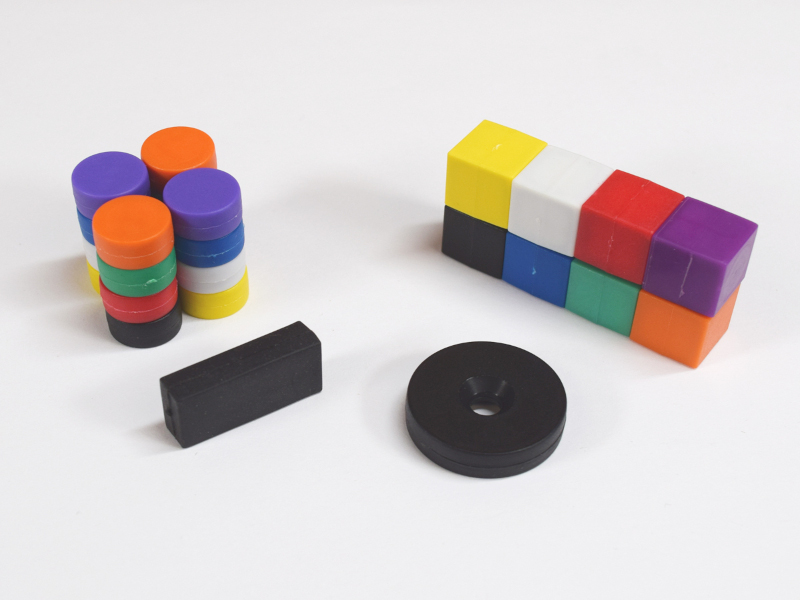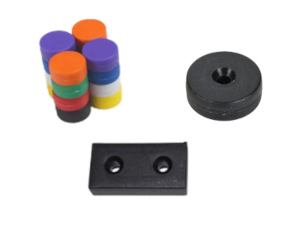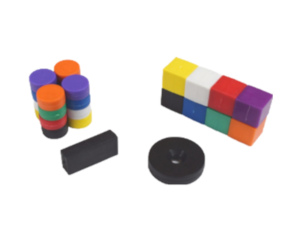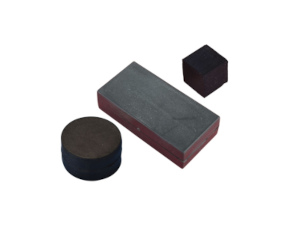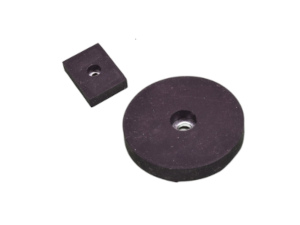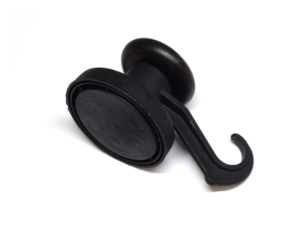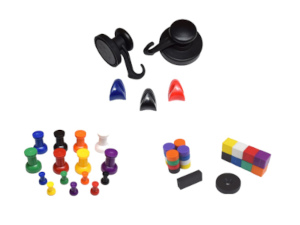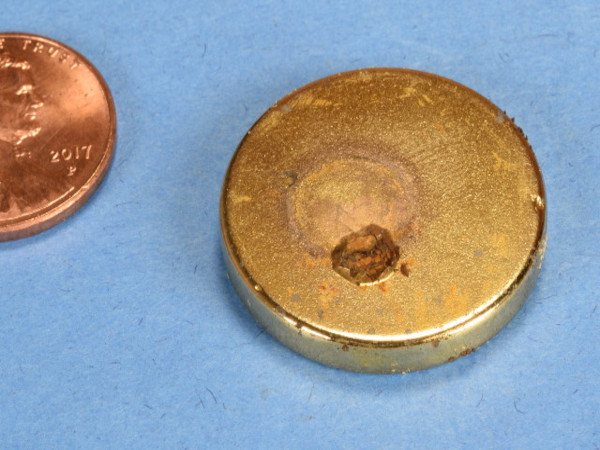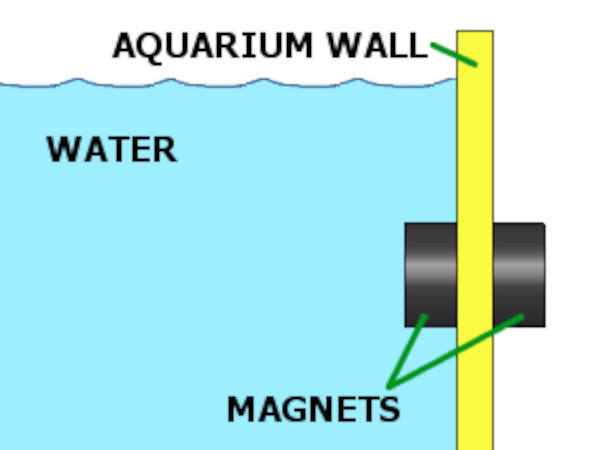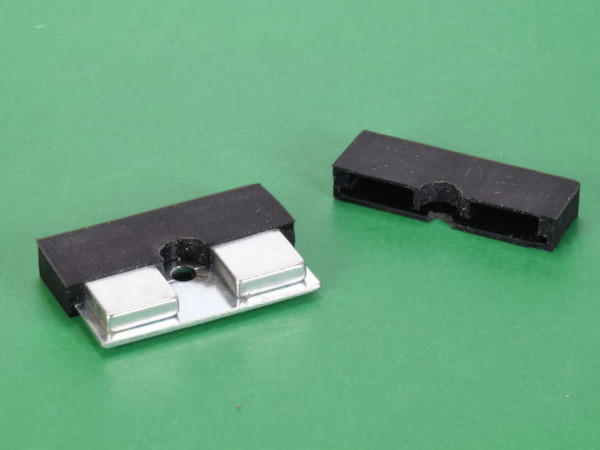Benefits of Plastic & Rubber Coated Magnets
Discover the uses and functional benefits of plastic and rubber magnet coatings
1. Plastic & Rubber Magnet Properties
Plastic and rubber magnets are renowned for their versatility and durability, making them suitable for a variety of applications. Whether you are seeking corrosion resistance for underwater environments, enhanced grip, or vibrant aesthetic appeal, our plastic and rubber coated magnets offer a myriad of solutions tailored to meet your needs. Explore the range of properties below to discover the perfect fit for your project:
-
Corrosion resistance - This property is useful for underwater environments or where moisture is a concern
-
Impact resistance - Plastic and rubber coated magnets are much more durable than a nickel plated magnet and can be slammed or dropped without breaking
-
Aesthetic appeal - Available in a variety of vibrant colors
-
Surface protection - Prevent scratching or marring of steel surfaces
-
Enhanced Grip - Rubber coated magnets provide high friction to prevent sliding
-
Reduced Friction - Plastic coated magnets have reduced friction to improve movement in certain applications
-
Chemical Resistance - Protection against certain chemicals or cleaning agents
2. Practical Uses of Plastic and Rubber Coated Magnets
Magnets coated in a plastic or rubber layer can be useful in many situations where the standard nickel coating is not. Below are real life examples with pictures on how plastic and rubber coated magnets are used.
Plastic Coated Magnets for Aquarium Use
Our plastic coated magnets are waterproof and aquarium and reef safe. They have a Polypropylene (PP) coating that prevents water or salt water from corroding the iron in the magnet and leaching into the water. They are popular for attaching coral, rocks and pumps to aquarium glass, for cleaning robots and more.
Learn more about using magnets in an aquarium setting
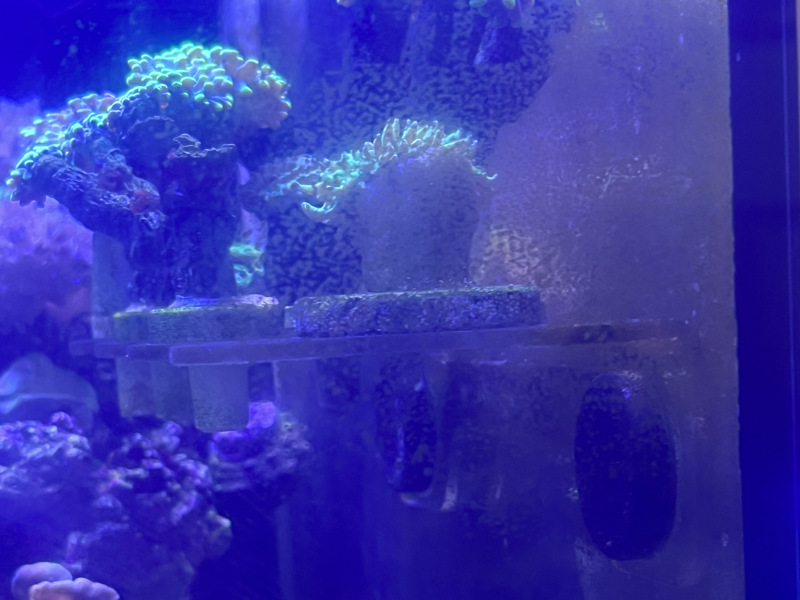
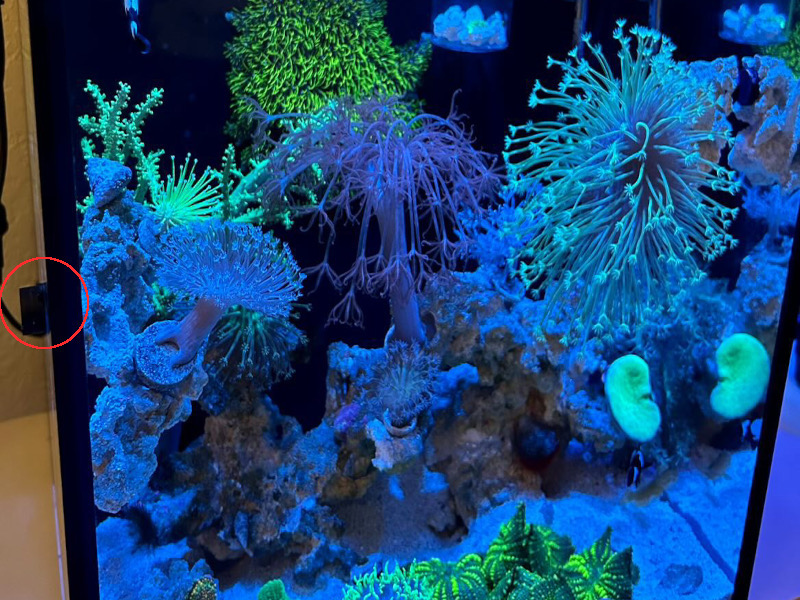
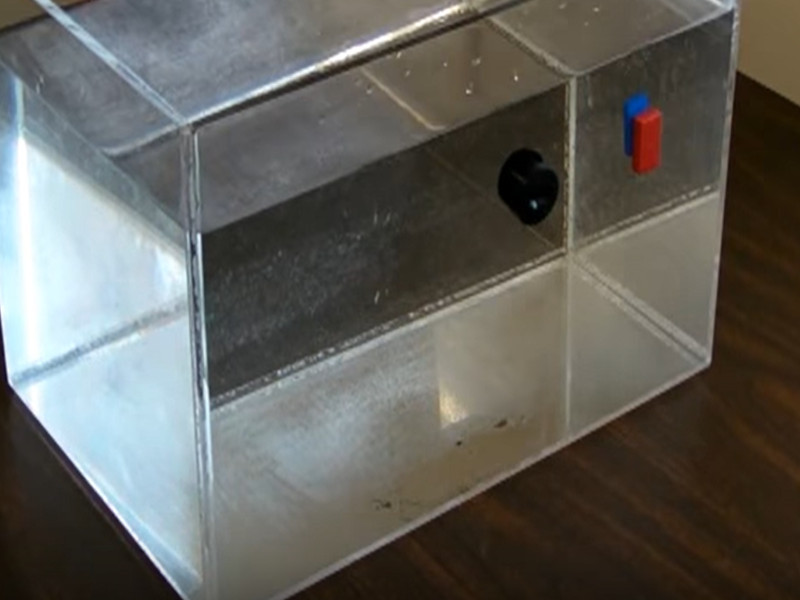
Outdoor Magnetic Closures and Mounting
Plastic and rubber coated magnets are perfect for outdoor applications like magnetic gate closures, hanging signs and posters to steel surfaces, hanging wreaths or decor, and more.
Learn more about using magnets outdoors
- Magnetic License Plates
- Mounting Outdoor Decor with Magnets
- Hanging Christmas Decorations with Magnets
- Rubber Mounting Magnets
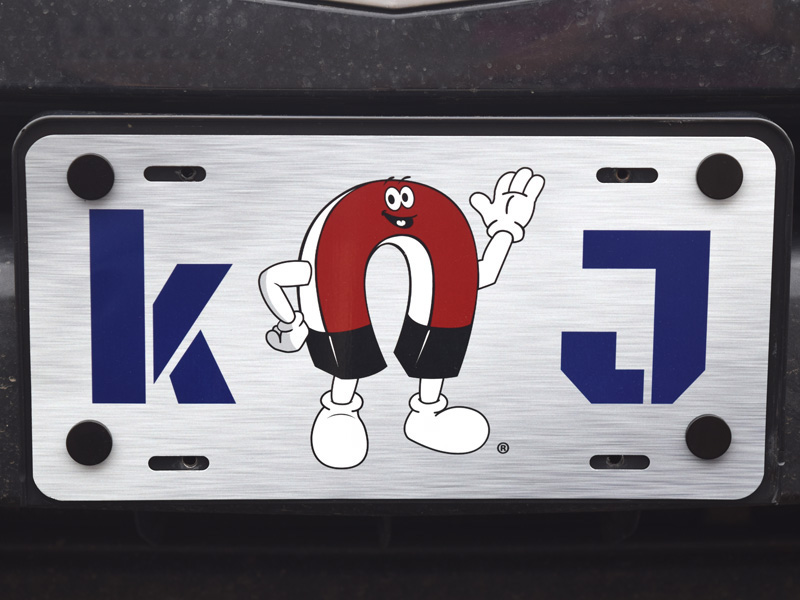
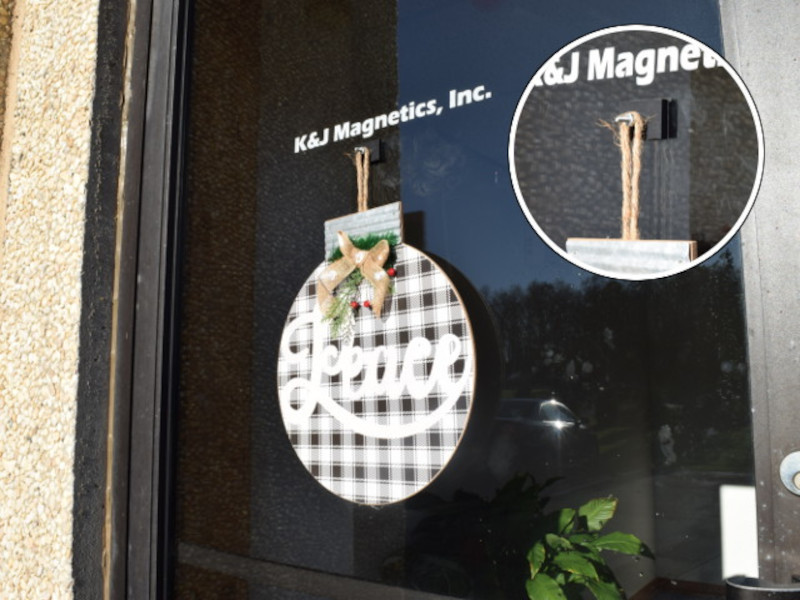

Rubber Coated Magnets to Prevent Sliding
Rubber coated magnets increase the friction between a magnet and steel surface, which helps keep the magnet from sliding along the surface. This is important when hanging objects, mounting vehicle signs and other applications when the magnets shouldn't slide easily.
Learn more about friction and rubber coated magnets
- Rubber Mounting Magnets
- Mounting Signs on a Car with Magnets
- Leverage and Friction when Using Magnets
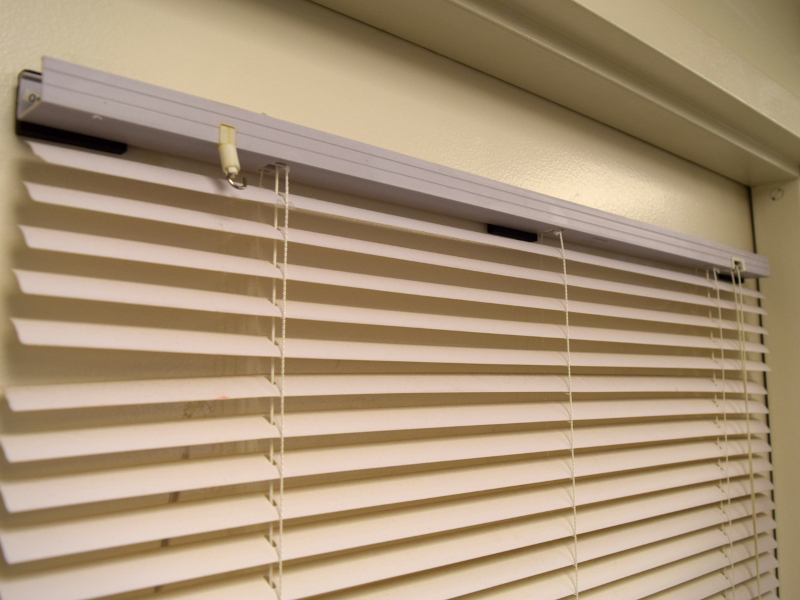

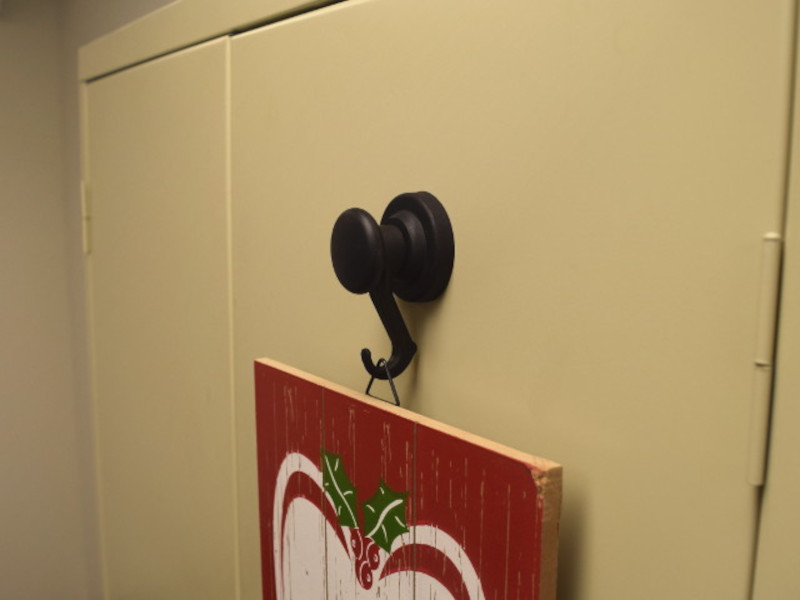
Use on Magnetic Dry Erase Boards
Plastic and rubber coated magnets are a great solution for both magnetic whiteboards and magnetic glass dry erase boards. They offer a strong hold and are aesthetically pleasing. Also see our dry erase board magnets for more options.
Learn more about magnetic dry erase boards


High Impact Applications
Plastic and rubber coatings are much more durable than their nickel plated counterparts. The extra layer of plastic or rubber adds a layer of protection and prevents the magnet from damage. These magnets can withstand much higher impacts and should be considered in any application where breakage is a concern.
Shop Plastic and Rubber Coated Magnets
Check out our great selection of plastic and rubber magnets.
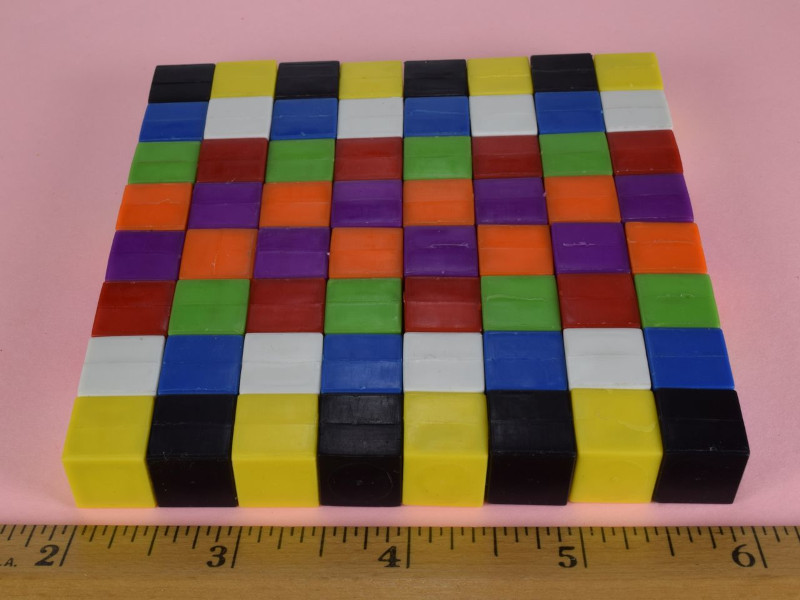
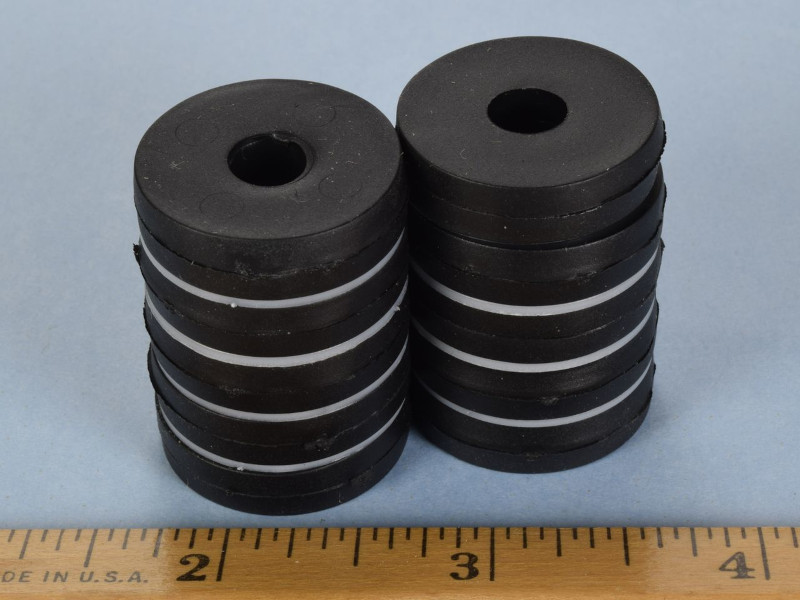
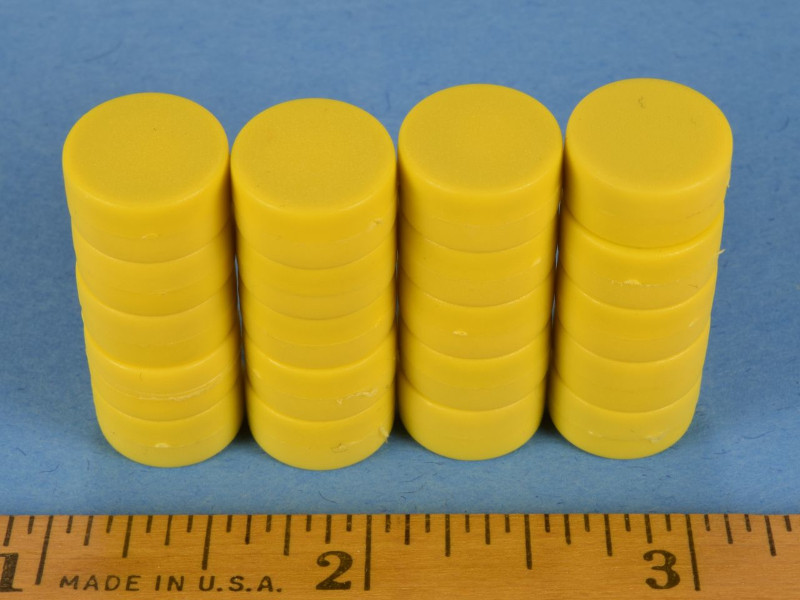
3. Plastic & Rubber Coating FAQ
Here is a collection of questions that people commonly ask about plastic and rubber coated magnets.
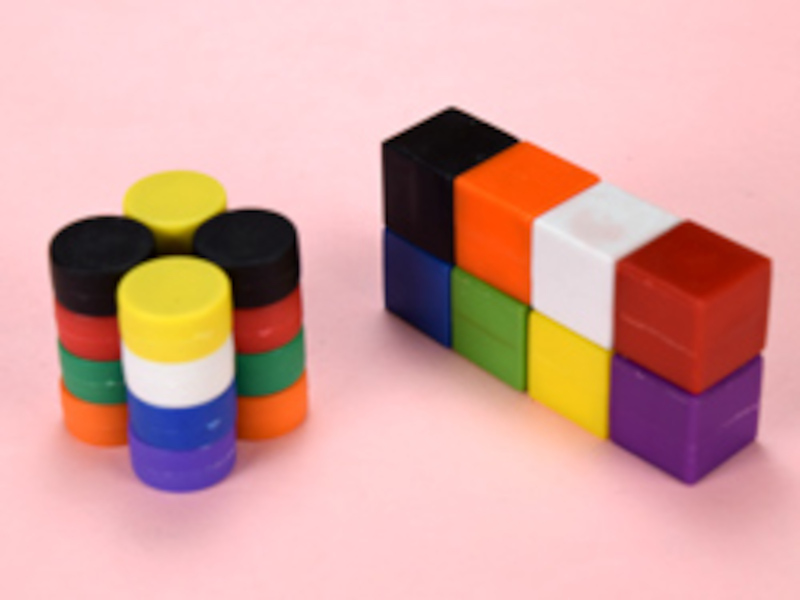
What is a plastic or rubber coated magnet?
A plastic or rubber coated magnet is simply a nickel plated magnet with a an additional coating of plastic or rubber. This coating not only provides good weather and corrosion resistance, but also provides more shock resistance and is less likely to scratch the surface it is attracting to. Rubber coated magnets also make hanging with magnets easier with increased friction.
Are magnets safe for aquariums and reef safe?
Yes, plastic coated magnets are safe for aquarium and reef use. Plastic coated magnets are commonly used in both fresh and salt water aquariums, to hold up coral, pumps, frag rocks, for cleaning and more. Our Aquarium Magnets article talks about this in further detail and gives suggestions based on the glass thicknesses. We do not recommend using rubber coated magnets in aquariums.
Can I glue to plastic or rubber magnets?
Yes, you can glue to plastic or rubber coated magnets. Just be sure the adhesive is rated for plastics or rubber. See more in our Gluing Magnets article.
Are neodymium magnets waterproof?
Plastic coated neodymium magnets are completely waterproof, while a traditional nickel plated magnet is not.
Will neodymium magnets rust?
Nickel plated magnets will corrode in the presence of moisture. Plastic and rubber coated magnets will not corrode in wet or humid environments.
Does K&J Magnetics provide custom sizes of rubber or plastic coated magnets?
Yes, we can provide custom magnets for different sizes of plastic or rubber coated magnets. However, they can be very costly due to extra tooling charges etc. and the minimum order requirement is much higher than our standard $250 minimum for custom magnets. For small scale use, check out our How to Rubber Coat Your Magnets article for a step-by-step process of how you can make your own rubber coated magnet.
What type of plastic is used for a plastic coated magnet?
The plastic coating is Polypropylene (PP).
4. Testing Plastic & Rubber Coating Friction
We list the pull force for each of our plastic and rubber coated magnets, but how much can they hold on various surfaces? Below are test results of the approximate forces required to slide them on different surfaces. This is helpful information when hanging objects. Use the percentage listed multiplied by the listed pull force to estimate how much weight the magnet can hold before it starts to slide along the surface.
For example, our DC6PC-BLK has a listed pull force of 10.9lb to a steel plate. According to our testing, it would take approximately 13% of that force to slide the magnet along a painted steel door, or about 1.5lb. You will notice that the rubber coated magnets are much harder to slide!
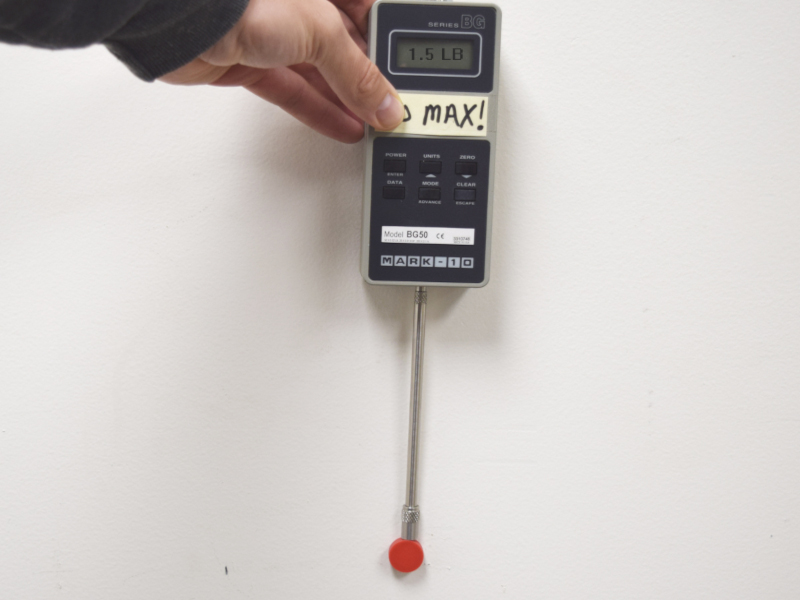
| Surface Type |
Plastic Coating Sliding Force (in % of pull force)
|
Thermoplastic Coating Sliding Force (in % of pull force)
|
|---|---|---|
| Painted Fridge |
7%
|
28%
|
|
Painted Steel Door
|
13%
|
56%
|
| Filing Cabinet |
12%
|
42%
|
| Magnetic Whiteboard |
5%
|
23%
|
| Magnetic Glass Dry Erase Board |
3%
|
7%
|
|
Magnet to Magnet
|
50%
|
100%+
|

